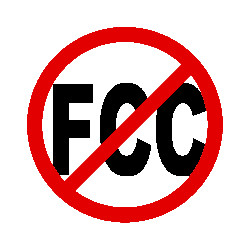
The FCC has attacked TP-Link's non-compliance with new FCC rules despite being mostly in compliance via a total lock down. This has caused the lock down situation to go from bad to worse. While this is being sold in the media as FCC doing good by forcing companies to cooperate with the open source community it's actually undermining the communities values and ability to get a complete set of source code upstream for *any* modern devices. It's not acceptable that we should have to lock down the main firmwares, but it's worse to ask manufacturers to lock down specific wifi firmwares only.
Here is what the FCC says:
"the Commission required . . . device software that controls the RF parameters that ensure compliance with the Commission’s technical rules for preventing harmful interference must be secured. The purpose . . . is to prevent modifications to the software that could, for example, . . . enable tuning to unauthorized frequencies, increased power above authorized levels, etc. The rule is not intended to prevent or inhibit modification of any other software or firmware in the device, such as software modifications to improve performance, configure RF networks or improve cybersecurity.”.
As a result of the FCC settlement TP-Link will not lock the entire device (on at least some routers), but critical components instead. This is dangerous because it will prevent us from gaining access to the complete set of source code needed to add functionality (like proper mesh networking support), fix bugs, and ensure that devices are not compromised or bugged by national security agencies.
Prior to this users with sufficient technical knowledge could at least technically unlock most wireless routers provided they had the right tools. If users can build the source code for these select wifi firmware components themselves the companies that lock down just the wifi firmware will no longer be in compliance. Before a user would have to go to greater lengths to unlock the router first, but it probably wouldn't jeopardize things as it would theoretically be a user taking extreme measures (even now you can through modification cause a router to go out of compliance). If the release of code will jeopardize companies compliance with FCC rules the companies designing these chipsets will not be able to release said code. Period. Even if we ship a router that is locked such that there is no simple way to update the firmware no company designing chipsets will release the code for key wifi firmware components as it would risk putting there other customers products into non-compliant states.
